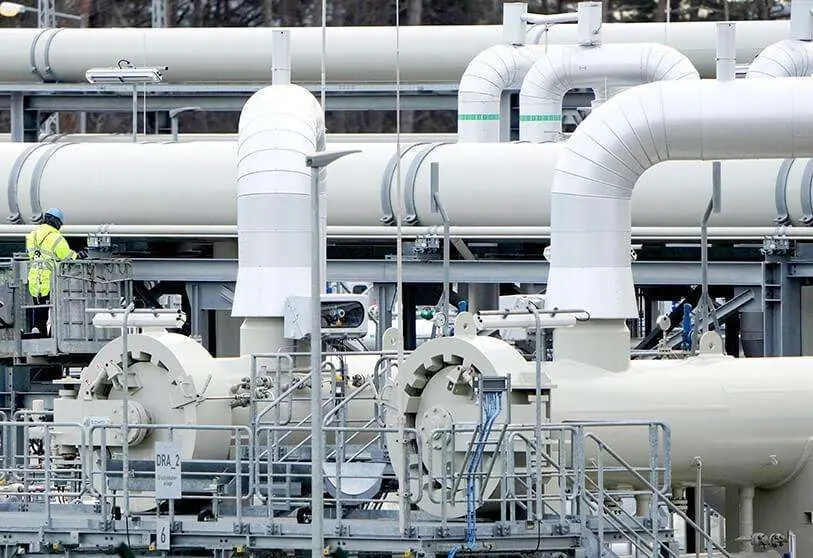EU-27 reach agreement to reduce gas consumption for winter

Few predictions seemed to point to an easy agreement when, on 20 July, the European Commission put on the table a drastic proposal to voluntarily reduce gas consumption by 15% over the next eight months. According to European Commission President Ursula von der Leyen, this measure would become mandatory "in the event of a total interruption of Russian supplies".
But - just as Russia's threat to NATO's borders resuscitated an organisation thought to be "brain dead" - the energy crisis on the old continent has reawakened the solidarity and negotiating skills that inspired the European community at its inception.
On Tuesday, following an extraordinary Council meeting of the EU-27 energy ministers, the European Union announced a consensus on how to save gas for the winter. The agreement, which did not require the unanimity of all members, but the support of a qualified majority of 15 of the 27 countries, has been outlined as a "common solution" to reduce gas demand by 15% of the average consumption of the last five years. Unlike the initial proposal, however, it takes into account the specific cases of several EU countries, such as Spain, Portugal and Malta.

"It was not an impossible mission. The ministers have reached a political agreement on the reduction of gas demand, with a view to next winter", stated the presidency of the European Council, held during this six-month period by the Czech Republic, on a measure that is expected to run from 1 August 2022 to 31 March 2023. As Rapidan Energy Group's global markets expert Alex Munton pointed out a few days ago to Foreign Policy, we could be talking about one of the "most extreme energy crises that has ever occurred in Europe". An "energy war" by Russia.
The Commission's initial text was not well received by powers less dependent on Russian gas, such as Spain, Portugal or Malta, whose gas networks are not interconnected with those of other European countries. As a result, their individual savings in gas consumption would not have an impact on total savings at the EU level.
Thus, positions such as that of Spain's Third Vice-President and Minister for Ecological Transition, Teresa Ribera, made clear their willingness to "show solidarity", although with a reduction target "not of 15%, but significantly below". "Because if it is a solidarity package, what we have to do is combine the different solidarity measures, which are not just about net savings, but about how to ensure that those who need it can have access to energy," said the Spanish representative on her arrival in Brussels.

Therefore, among the exceptions to this mandatory reduction target would be those member states that are not interconnected with the gas networks of other countries, as these "would not be able to release significant volumes of pipeline gas for the benefit of the rest". Similarly, powers whose electricity grids are not synchronised with the European electricity system (such as the Baltic countries), and those that rely heavily on gas consumption for electricity production, are also exempted from the mandatory reduction. The aim is to avoid an electricity supply crisis.
States that can demonstrate that their export capacities and national Liquefied Natural Gas (LNG) infrastructures are used to the maximum extent possible to redirect gas to other powers will also be able to apply for an exemption, as well as those whose gas filling targets have increased by at least 8% over the last year, compared to the average of the previous five years.

In this way, in the face of gas cuts that the European Commission has considered "politically motivated", "the European Union has taken the decisive step". A step that the president of the European institution, Ursula von der Leyen, praised for being taken "in record time". This measure "complements all other measures taken so far" in the context of the "REPowerEU" initiative to reduce dependence on fossil fuels and accelerate the energy transition, she added.
The European Union "continues to move forward in unity and solidarity" with the commitment made by EU leaders at their recent summit in Versailles (France) to eliminate dependence on Russian energy imports, said the President of the European Council, Charles Michel, who warned that Moscow "is using gas as a weapon", but that the EU "is prepared for possible supply disruptions".

Some voices, such as Fatih Birol, president of the International Energy Agency (IEA), have argued that this 15% saving will not be enough, as the reserves stored to date - considered by Birol to be "scarce" - are at an average of 60% of their capacity. "If we want to experience a comfortable and normal winter in Europe, our gas reservoirs have to be 90% full before winter starts," he said, after urging to raise the savings target to 20% over the continent's average consumption over the past five years.








